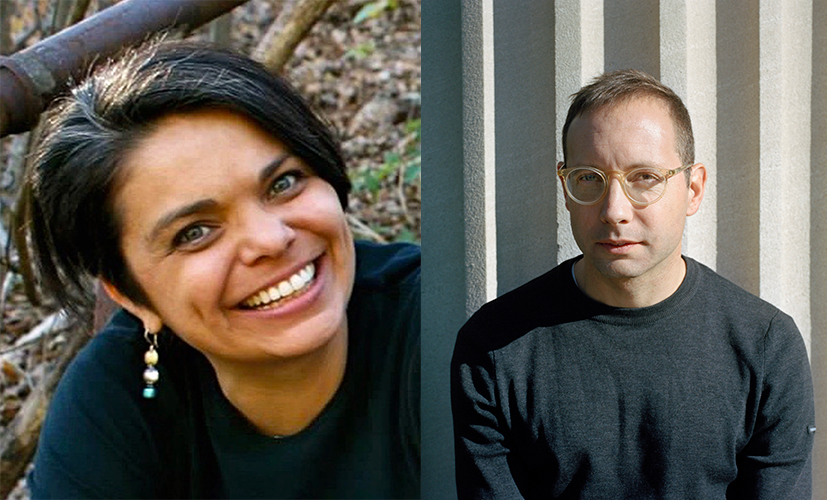In March, The Paris Review launched The Art of Distance, a newsletter highlighting unlocked archive pieces that resonate with the staff of the magazine, quarantine-appropriate writing on the Daily, resources from our peer organizations, and more. Read Emily Nemens’s introductory letter here, and find the latest unlocked archive pieces below.
“Sheltering in place all these months has made me realize how much I truly enjoy readings—and how much I miss them. Writing is, of course, a solitary practice, and writers—and readers, for that matter—are the types of people who like spending lots of time alone. But readings and discussion panels are among the few forums in which a whole bunch of literary people get together to partake of the written word, to feel a room humming with collective concentration—and to hang out afterward. Social media just ain’t the same. The Paris Review has always held celebrations and readings to joyfully gather our community in a space shaped by literature. For now, that space must be virtual, but the charge and the sense of community are no less real. In that spirit, and until we can get back to gathering before a podium, this installment of The Art of Distance is dedicated to virtual literary events, two of which the Review is participating in next week, with more to come (including Readings from the Summer Issue on July 22, featuring contributors to no. 233). So enjoy these unlocked interviews and stories with contributors whose events you can ‘attend’ in a few days.” —Craig Morgan Teicher, Digital Director
This week, the Review is sponsoring or cosponsoring two free events with recent contributors. On Tuesday, July 14, at 7 P.M., the fiction writer Benjamin Nugent will talk on the Review’s Instagram Live feed with the New Yorker staff writer Naomi Fry about the work and influence of Leonard Michaels. And on Wednesday, July 15, at 7:30 P.M., TPR editor Emily Nemens will talk with Kelli Jo Ford as part of Greenlight Bookstore’s Zoom series (RSVP required). Each author’s work from the TPR archive has been unlocked this week to help you get prepped and psyched for the events.
Kelli Jo Ford’s “Hybrid Vigor” (issue no. 227, Winter 2018) is the story of a mule with the bad, if motherly, habit of stealing calves. The story, for which Ford won the 2019 Plimpton Prize, is part of her debut novel, Crooked Hallelujah, a multigenerational saga about four Cherokee women, which she and Emily will discuss on Wednesday.
Benjamin Nugent, winner of the Review’s 2019 Terry Southern Prize, has been a frequent contributor to the magazine since “God” appeared in issue no. 206, Fall 2013 (and was performed by Jesse Eisenberg in Episode 9 of The Paris Review Podcast). It’s sort of a tale about a poet, or a poem, and offers a peek into the college milieu of his recently released story collection, Fraternity, as do “The Treasurer” (issue no. 217, Summer 2016) and “Safe Spaces” (issue no. 225, Summer 2018). Obviously, this is an uncertain time for thinking about the collective return to campus life; Nugent offers a socially distant way to go back to school and ponder some of the complications of college.
Most recently, in issue no. 231, Winter 2019, Nugent spoke with George Saunders for his Writers at Work interview. Nugent develops an easy rapport with Saunders, whom he describes as “chatty, kind, quick to shoot down any glib analysis of his work, and free with an anecdote, often casting himself as a blunderer whose illusions land him in hot water.” It’s a companionable and insight-filled conversation between two people who are obviously enjoying each other’s company. Nugent’s passion for Saunders’s work is plainly evident in “How to Imitate George Saunders,” an essay that he wrote for the Daily shortly after the interview was published.
On Tuesday, Nugent will discuss the work of Leonard Michaels. If you click over to Michaels’s author page, you’ll find everything there—an interview and three stories—unlocked as well.
Sign up here to receive a fresh installment of The Art of Distance in your inbox every Monday.
from The Paris Review https://ift.tt/2CwpW3n

Comments
Post a Comment